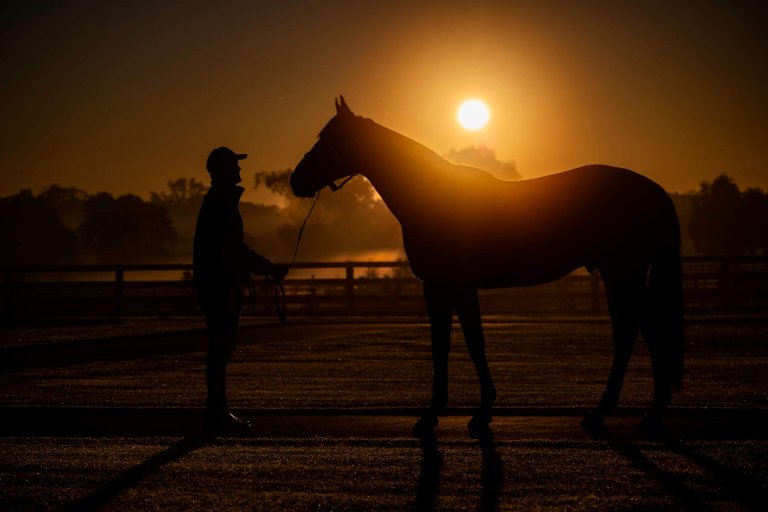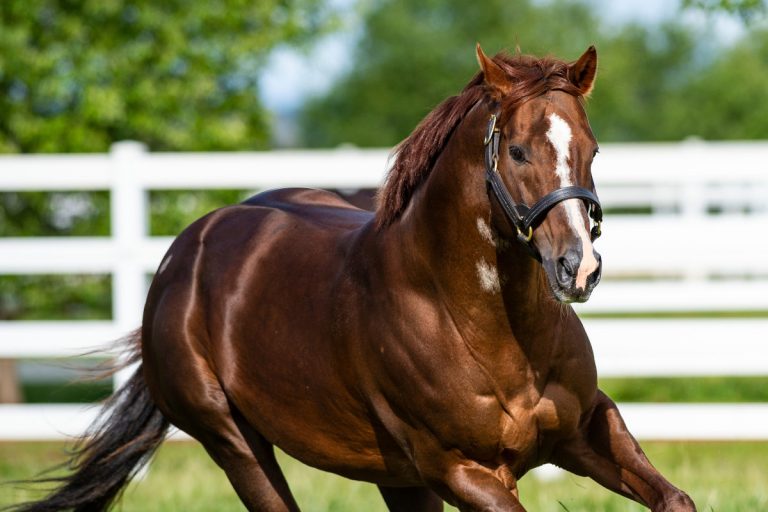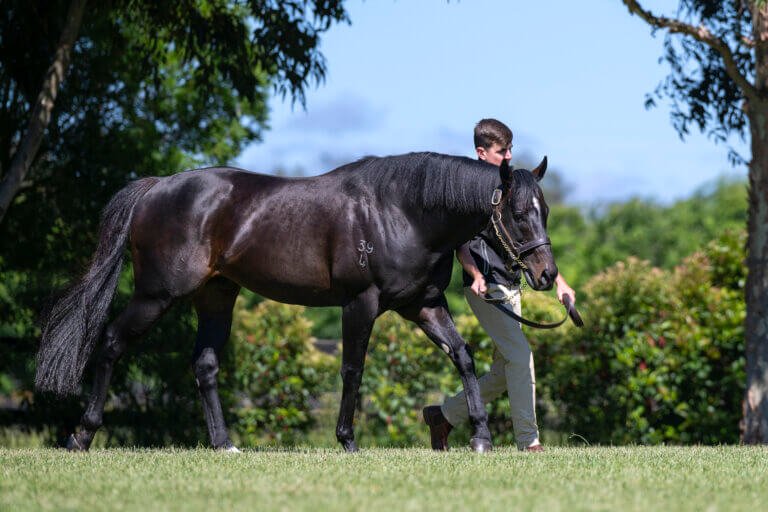Our Racing, Sales and Nominations Manager Troy Stephens features in this week’s Generation Next in Thoroughbred Daily News Australia New Zealand.
While Stephens, who grew up on a sheep and cattle farm in Waverley, New Zealand, didn’t hail from a racing family, it is no surprise he has made a career out of horses, with the North Island town playing host to a booming thoroughbred community.
Riding stock horses as a child paved the way for Stephens to take up trackwork duties with prominent local trainer Bill Thurlow at the tender age of 12.
The time Stephens spent with Thurlow proved pivotal in his development as a rider and individual.
“Bill (Thurlow) is a great horseman and farmer, and that was when I really got the bug for racing and pretty much knew that I wanted to do something in the sport with my life,” Stephens told TDN AusNZ.
“We had stock horses on the farm, so I knew how to ride a horse, and when I started with Bill it was more a matter of learning to bridge the reins and picking things up about the thoroughbred as I went.”
Stephens was forced to call time on his tenure with Thurlow and attend boarding school the following year, however, the seeds were planted and he carried on riding work for Michael Oulaghan – a jumps trainer in the region where he studied.
“While I was at boarding school I got an exemption to leave the boarding hostel early in the morning to go and ride work,” Stephens said.
“We had some really smart jumpers, such as Upper Cut and Counter Punch back then and it was great to be able to ride high-class jumpers.
“And that encouraged me to really stick in the industry.”
At the completion of his secondary studies, Stephens started out at the Awapuni apprentice school with the view of becoming a jumps jockey.
During this period he would ride in point-to-point races, but unfortunately, weight got the better of him before he could officially compete under raceday conditions.
After accepting the ship had sailed on his dream of being a jockey, Stephens was tasked with a difficult decision.
“The next transition from riding jumpers and schooling horses was riding trackwork for a bigger stable, but track riders weren’t paid overly well back then and I always wanted to try and do well for myself,” Stephens said.
“So, I thought race education was not only vital in the racing cycle, but something I could make a healthy living from.”
Once set on race education Stephens made the move to Matamata – the heartland of New Zealand’s thoroughbred industry.
His first job in the region was for Paul Pertab, and during the three years he worked with the renowned horseman they educated up to 750 youngsters.
“We were doing all of Te Akau’s yearlings and Sir Patrick Hogan’s keeper fillies, so I got to ride the cream of the crop when it came to New Zealand-bred horses,” Stephens said.
“Paul (Pertab) was amazing and there are a lot of little things I learned during that period that have held me in good stead.”
Stephens continued in the race education caper for the next two-and-a-half years, working for Cambridge-based educator, pre-trainer and jumps trainer Mark Brooks before getting the gig as Waikato Stud’s private educator at Courtza Park.
“Waikato (Stud) was probably the first time I took on a lot of responsibility on my own, I used to do 12 ready to runners each year and 35 keeper fillies, and that was where I really progressed,” Stephens said.
“But after doing that for a bit I thought I had to either try and find a lease property and go out on my own or make the move to Australia.
“So, I came across on my own, turned up in Scone and basically knocked on Newgate Farm’s door and asked them for a job.”
New kids on the block
The year is 2012 and the Henry Field-owned Newgate Farm, which was established only two years prior, is on the verge of becoming one of the leading stallion farms in Australia.
When Stephens came knocking, Newgate were standing a young roster that included Deep Field, of which he would build a close relationship with while working as a stallion handler.
While handling and riding stallions was ‘slightly intimidating’ in the beginning, Stephens, with the assistance of Peter Keating, quickly settled into the role.
“What I could see and read from the outside was that Newgate was the up-and-coming stallion farm in the country and I wanted to be a part of it,” Stephens said.
“I had never actually worked with stallions before, and they’re big horses and can be slightly intimidating, to begin with.
“But I got to ride those boys in the morning and look after them from dusk to dawn and got to know them really well.”
In Stephens’ first breeding season at Newgate its stallions covered 900 mares in an ‘old round yard’ before doubling that number by the time he departed.
“It was great to be a part of in those initial growth stages of the business, I spent about two years in the stallion barn before Bruce Slade and Henry Field gave me the opportunity to come into the sales team, which I am forever grateful for,” Stephens said.
“They have both been great influences on my career, and Newgate is such a fantastic school, as Henry likes to bring young people through the company.
“I certainly wouldn’t be where I am in my career if it wasn’t for Bruce, Henry and their mentoring along with Sam Fairgray, who was running the stud at the time.”
Transitioning into a sales and nominations role required Stephens to once again step out of his comfort zone and take on a new challenge.
However, the guidance of Slade along with Mark Lindsay and Aaron Bott, who both played integral roles in the sales team, made for a rather smooth transition.
“They were all so unique in their different ways and have different sort of selling styles, so I could sit in an office and listen to all three of them guys and pick and choose little things I thought worked well to become my own person,” Stephens said.
“All three of those guys have sold a lot of nominations in their time and I think that helped immensely and I look back on that period fondly.”
Selling nominations to Capitalist, Extreme Choice and Flying Artie ahead of the 2017 breeding season, each of which subsequently made an impact at stud, is a period that isn’t lost on Stephens.
“I’ve always had a soft spot for Capitalist, he was my favourite horse there on the roster,” Stephens said.
“And to have those three horses in Capitalist, Extreme Choice and Flying Artie come to Newgate and then watch them go on is very rewarding knowing I contributed a little piece to that puzzle.”
Newgate’s meteoric rise comes as no surprise to Stephens.
“Henry has such a fascinating mind, he is such a forward-thinker and is always thinking about how to get bigger, better and stronger,” Stephens said.
“And Bruce (Slade) has a fantastic mind too, he is very knowledgable, passionate and I was very fortunate they were there.”
Boarding before the ship sails
In 2021, Stephens rekindled his working relationship with Fairgray after joining Mr Zhang’s burgeoning Victorian-based Yulong operation as its sales and nominations manager.
“I had admired Mr Zhang for a long time and the investment he was putting into the Victorian breeding industry and it was something I wanted to be a part of,” Stephens said.
“So, the next move for me was to come down to Victoria and take on a bit more responsibility.”
It hasn’t taken long for Stephens to make his mark at Yulong, with the emerging leader tasked with the ‘rewarding and exciting challenge’ of doubling as the company’s racing manager.
Despite describing the duality of his position as a ‘juggling act’ Stephens is living the dream.
“Having grown up in racing stables and working with horses I’ve always been drawn back to it and I do love the breeding side of it,” Stephens said.
“So, it is really nice now to have that balance, where I can be involved in the racing side and not just the breeding.”
Mr Zhang’s continued investment continues to amaze Stephens, with Yulong adding a host of high-class mares, including Melody Belle (NZ) (Commands), Away Game (Snitzel) and Tofane (NZ) (Ocean Park {NZ}) to its portfolio over the past 18 months.
“First and foremost we want to be the premier stallion farm, not just in Victoria but in Australia and to do that we need to give not just Written Tycoon but these young stallions the best opportunity,” Stephens said.
“And to do that we need to support them with the best mares and in turn, those resultant yearlings get into the best stables.
“It’s a big process, there’s a lot of cogs in the wheel, but Mr Zhang’s leaving no stone unturned.”
The strength of Yulong’s broodmare band, stallion roster and racing contingent is what drives and motivates Stephens on a day-to-day basis.
He also loves working alongside Fairgray and with a ‘vibrant young team’, which includes Harry King and Claudia McDougall, who both play a key role within Yulong’s sales and nominations sector.
“Despite the huge investment Mr Zhang has put into the farm and industry down here you just don’t know where it will stop,” Stephens said.
“So, it was great to jump on the ship before it sailed out of the port, so to speak, and it’s such a great place to live.”
The next generation
The notion that ‘hard work pays off’ is no cliché, according to Stephens.
His advice to the next generation of ambitious industry participants is to knuckle down and be patient.
“The main thing is to find a company you are happy at and where you have access to a mentor,” Stephens said.
“Patience and hard work is such a key element because we aren’t entitled to anything, and at the end of the day hard work truly does pay off.
“To achieve great things it takes determination and time. We all have the ingredients to make the cake we want.”
Despite acknowledging he doesn’t have all of the answers to the industry-wide staffing crisis, Stephens believes we must continue to do better to retain workers and create pathways for those starting out in the caper.
“We need to show younger staff coming through in the industry that there is career paths and you can climb the ladder in a company and do very well for yourself and have a fulfilling and rewarding career,” Stephens said.
“A work-life balance is another factor that is very important too, you can’t be out in the rain from dusk to dawn and doing 12 out of 14 days.”
Article courtesy of Thoroughbred Daily News Australia New Zealand, Written by Jackson Frantz.


